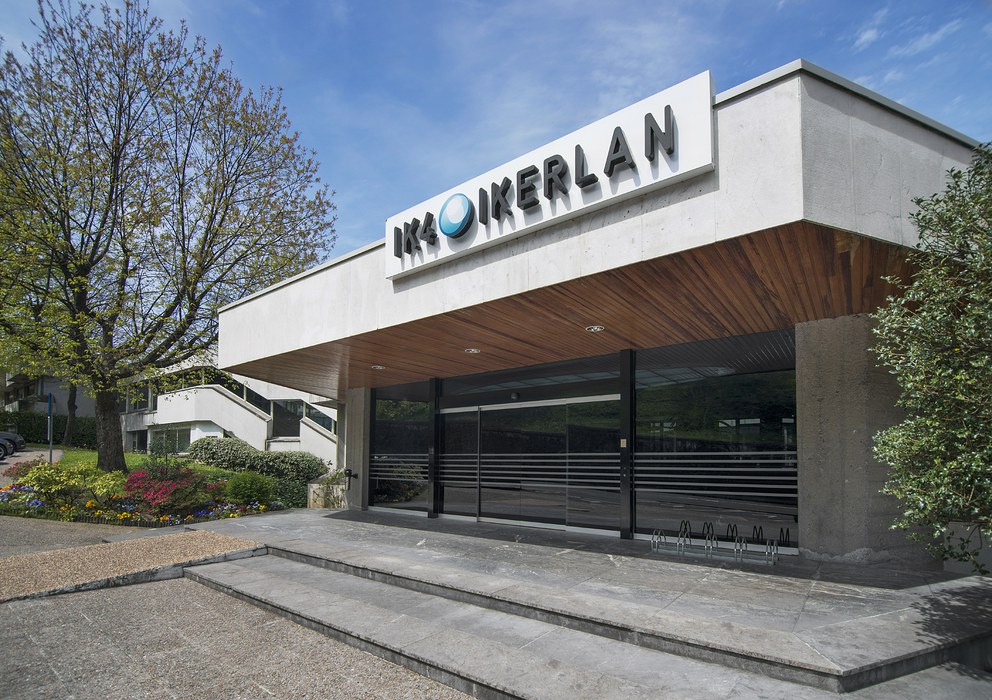Most read
- 1. MONDRAGON leads ASETT, the Social Economy Hub for social transformation
- 2. Orbik Cybersecurity, the first technological start-up to become a co-operative
- 3. Eika acquires Stone Cooker S.L and its innovative 'Suiseki' table to boost growth
- 4. Transforming plastic waste: how Primus is revolutionizing recycling in the automotive and home appliance industries
- 5. PM Pedro Sánchez visits MONDRAGON Kunshan Park, in China
- 6. "Jaguar Land Rover perceive us as essential technological assistant"
- 7. Orbea shines a light on its Olympic bikes
- 8. Juan Mari Aburto visits the Ikerlan Technology Centre in Bilbao
- 9. Orkli joins Biotz with an 11.11% stake
- 10. Dikar inaugurates its modern production plant in Arrasate, embarking on a new phase
IK4-IKERLAN Leads european commitment to improve energy behaviour in the industry

The market now requires more efficient and less pollutant products and services, with bearable costs and offering greater reliability. To this end, it is necessary to move towards innovative developments in electrical storage and thermal management in sectors such as energy, industry and transport, amongst others.
The Etekina project is part of the European Commission's H2020 program
In this context, the IK4-IKERLAN Technological Center leads the Etekina European project, which aims to improve the energetic behaviour of industrial processes through heat recovery and reuse, heat that is currently being dissipated in them.
The European Initiative coordinated by the Basque Centre will in particular develop and validate heat exchangers based on caloducts technology for the steel, ceramics and non-ferrous metals sectors.
The Caloducts are heat exchangers with greater capacity to transfer heat, giving rise to a greater use of the residual heats that are currently being discarded. The caloducts developed within the framework of this project will be adapted to the existing effluents of the mentioned sectors industrial processes in order to obtain an efficient and profitable heat reuse.
The recovered heat will be used in industrial processes to improve its energy efficiency and reduce its operational costs.
As explained by IK4-IKERLAN head of energy storage and management Department, Igor Villarreal, caloducts based equipment, compared to conventional heat exchangers, considerably improves the transfer ratios, providing secondary heat flows with a higher flow rate and a higher temperature.
The heat exchangers developed in this project will be implemented in three industrial plants, in order to validate the heat recovery and reuse procedure. The demonstrators will in particular be installed at the Fagor Ederlan factory in the Arrasate-Mondragón (non-ferrous sector), in the facilities of SIJ Metal Ravne in Slovenia (steel sector), and at the Ceramiche Atlas Concorde Spa plant in Italy (ceramic sector).
Villarreal adds; “This initiative complements the industrial processes methodology for energy efficiency analysis currently being developed in the center. Furthermore, it allows us to continue investigating for the identification and development of new opportunities to improve thermal efficiency in industrial applications for different sectors.”
The European initiative, to be completed in 2021, will also allow us to know the caloducts technology application potential and limits in the recovery of fluid heat, and to facilitate the analysis replication methodologies development for these technologies application in other types of processes.
The Etekina project is part of the European Commission's H2020 program and has a total budget of 5,507,380 euros. The consortium is completed with companies, centers and Universities related to the sector, such as Fagor Ederlan, Insertec, Econotherm, Brunel University London, Sij Metal Ravne, Jozef Stefan Institute, Ceramiche Atlas Concorde Spa, University of Modena and Reggio Emilia and the European Science Communication Institute.
About IKERLAN
IKERLAN is a leading centre for technology transfer and for providing competitive value to companies due, among other things, to the expertise of its researchers. It offers comprehensive solutions by combining different fields of technology. This is possible owing to its high level of specialisation in three main areas: Electronics, information and communication technology (EICT), Energy and power electronics and Advanced manufacturing. It currently has a staff of approximately 300 people.




















